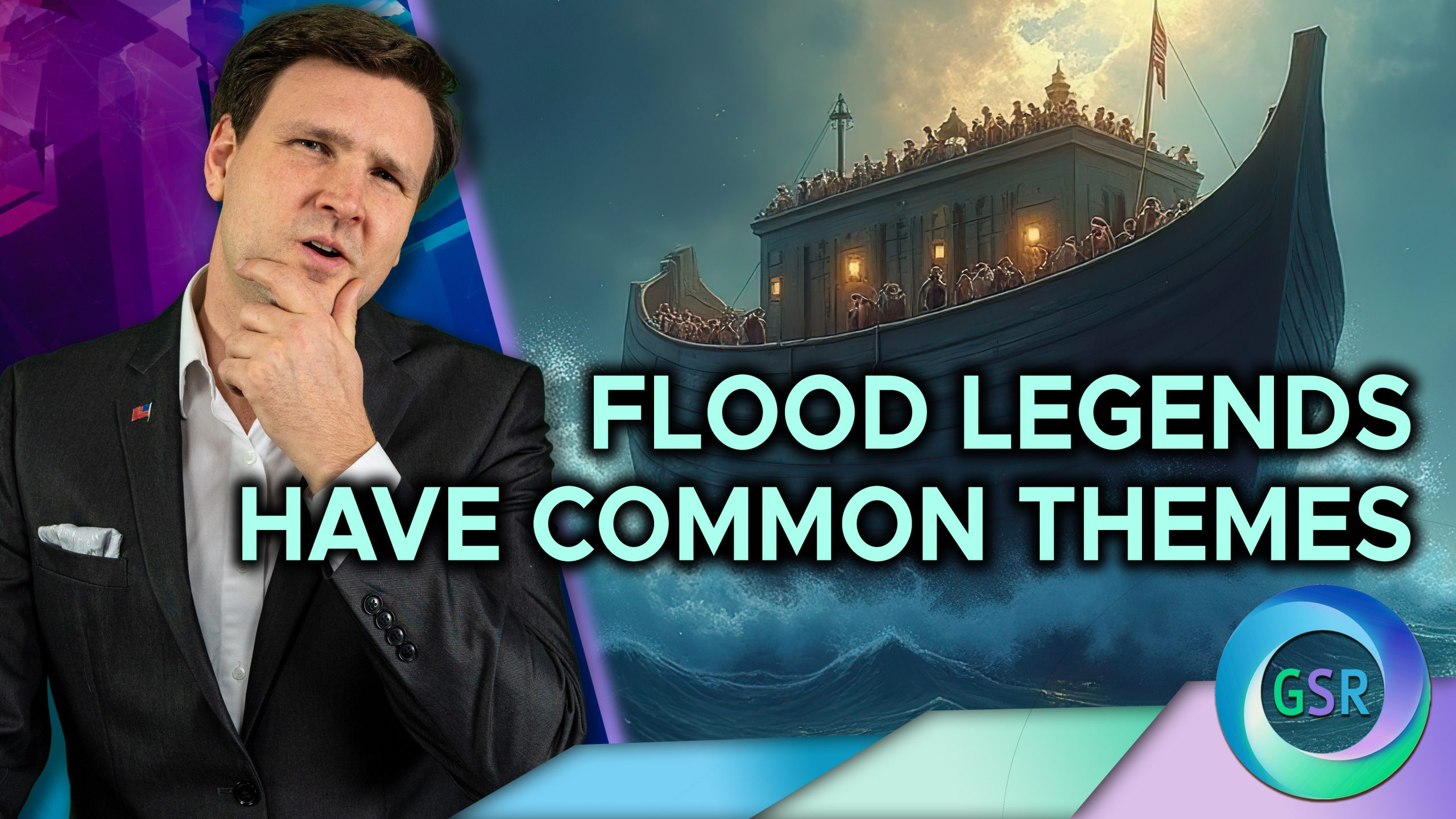In one of my previous videos, I detailed the Biblical record, and those of other Jewish historical texts to understand what they say about the Biblical flood. We also concluded that such an all-encompassing event would have a witness in nearly every nation and every culture, if it really was a global catastrophe. This is what the Jewish historian Josephus said–that every nation had tales of the Flood, and when you start to examine this extraordinary record, you can’t honestly walk away with anything but a firm conviction that this was an event that left a mark on the face of this planet.
From a famous Babylonian Epic (of Atrahasis) to the Hindu tale of Manu, from the Greek version with Zeus destroying the earth to the Chinese story of Yu the Great, and beyond, the flood narrative serves as a foundational story for every major civilization on earth. And everywhere the story took root, it spoke of divine judgment.
These stories, while varied in detail, collectively point to a significant event that reshaped the course of human history. The global flood myths, therefore, are not just fairy tales but witnesses of a historic event. Just as you’d expect for an event this dramatic and global–-people just couldn’t shake this story! As we examine just a handful of these stories, remember– they are there for a reason. God judged the earth once and it is promised that He will do it again.
Let’s start in the Middle East. One of the earliest recorded flood myths comes from Mesopotamia in the Epic of Gilgamesh. In this epic, the gods decide to send a flood to destroy humanity, but one god, Ea, warns a man, instructing him to build a boat to save his family and animals. Obviously, the parallels to Noah’s story are striking. In the Babylonian flood myth, the gods are annoyed by the noise of humanity, and they decide to send a flood to silence them. The god of wisdom instructs a man to build a boat to save himself, his family, and animals. If these stories were limited to the regions around Israel, there would be a strong argument that this was, perhaps, a localized flood. But as you do the research, it’s clear that is not the case. Let’s start with Europe. In Greek mythology, did you know Zeus decided to destroy humanity with a flood due to their wickedness too? In this story, a man is warned who builds an ark to survive the deluge with his wife. Obviously, this seems like a mirror image of those stories already told. But as you travel, you would suspect that like a game of telephone, certain aspects of the story would hold, but other details would get jumbled, and that does seem to be the case. As you travel to northern Europe, for instance, there is a Norse story that tells of a flood caused by the blood of a giant who’d been killed. Two humans survive by hiding in a tree, ensuring the continuation of humanity. These details do differ, but there are also interesting similarities. The ark was made from a tree, and there were giants on the earth in both this story, and in the Genesis narrative. Let’s move to Asia. In Hindu mythology, the god Vishnu warns Manu of an impending flood, and he builds a boat and is saved along with seven others and seeds of all plants. This story also recounts the preservation of life and divine intervention–all themes central to the Genesis flood narrative. The Chinese legend involves a massive flood sent by the gods to punish humanity. “Yu the Great” is the one that heroically controls the floodwaters, saving the land and its people. Again, not every detail is there, but you would expect that. You’d expect some changes in every telling and re-telling. If that’s not enough, here are a few others: In a story from Tanzania, a great flood covered the earth, with a few people surviving by seeking refuge on a high mountain. A Hawaiian myth tells of a righteous man who survives a great flood. He builds a large canoe with a house on it, saving his family and animals. In Aztec mythology, two people survive a flood by hiding in a hollow tree and after the floodwaters recede, they repopulate the earth. Finally, the American Choctaw tell of a great flood that destroys the earth, but survivors also seek refuge on a high mountain.
The pervasive presence of flood myths across diverse cultures and regions underscores the reality of a historical cataclysm. The Genesis Flood provides the coherent framework that ties these stories all together. As humanity spread across the globe after the Flood, the memory of this event stayed with them. Knowing that this was a true event, and that God has left himself a witness, we must also grow in our respect of God. Because while He promised that He would not flood the earth again with water, there does remain a judgment for all who are on the earth.
The Apostle Peter says it best, when speaking about the judgment past and the judgment to come: “Knowing this first, that there shall come in the last days scoffers, walking after their own lusts, And saying, Where is the promise of his coming? For since the fathers fell asleep, all things continue as they were from the beginning of the creation. For this they willingly are ignorant of, that by the word of God the heavens were of old, and the earth standing out of the water and in the water: Whereby the world that then was, being overflowed with water, perished: But the heavens and the earth, which are now, by the same word are kept in store, reserved unto fire against the day of judgment and perdition of ungodly men.”
So let’s be humble and realize that there truly is good and evil, right and wrong. Let’s remember that the Bible has stood the test of time. And most importantly, I want to state that my faith in the one Who provides eternal salvation is just as relevant in this age as ever before. Don’t let anyone convince you to ignore it. It is a reasoned faith. An intellectual faith. An evidenced faith. And a faith that provides eternal hope for all who receive Jesus, Yeshua, our Messiah.
I’m David Rives,
Truly, the heavens declare the glory of God.
The form is not published.

